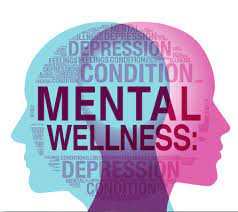The primary diagnosis must meet the criteria for a Serious Mental Illness (SMI), which is defined by the Substance Abuse and Mental Health Services Administration (SAMHSA) as:
adults aged 18 or older (17 or older in Georgia) who currently or at any time in the past year have had a diagnosable mental, behavioral, or emotional disorder (excluding developmental and substance use disorders) of sufficient duration to meet diagnostic criteria specified within the 4th edition of the Diagnostic and Statistical Manual of Mental Disorders (DSM-IV) that has resulted in serious functional impairment, which substantially interferes with or limits one or more major life activities.
The MMHC will accept individuals with the following SMI diagnoses:

In addition to meeting the clinical eligibility, the defendant must also be legally eligible to participate. The Solicitor General’s office will review each case and criminal history to determine initial consideration and eligibility. Thereafter, the full Court interdisciplinary team that includes the judge, coordinator, clinical evaluator, social worker, case managers, public defender, prosecutor, jail mental health, and a Community Service Board representative will discuss and determine a participant’s final eligibility for the MMHC. Not only must the current charge be non-violent, but the criminal history must substantiate a non-violent background. Specifically, the criminal offense must not involve any case in which a victim suffered a broken bone or other severe bodily harm or involved weapons.
Hours of Operation
8:30 am until 5:00 pm
Monday through Friday
Except Holidays
Contact Us
Clerk’s Office: 404-371-2261
Civil Division: 404-371-2261
Criminal Division: 404-294-2150
Ordinance Division: 470-542-9485
Diversion Court: 404-371-2241
Marshal’s Office: 404-371-2930
Locations
Clerk’s Office
DeKalb County Courthouse
Administration Tower
556 N. McDonough Street
2nd Floor
Decatur, GA 30030
Civil Matters
DeKalb County Courthouse
Administration Tower
556 N. McDonough Street,
2nd Floor, Room 230
Decatur, GA 30030
Criminal Matters
3630 Camp Circle
Decatur, Georgia 30032
Ordinance Matters
3630 Camp Circle
Decatur, Georgia 30032
Navigate this Site
Please use the buttons below to select the appropriate case type.